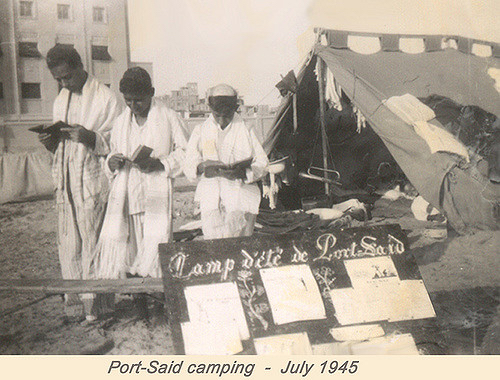A few days ago, Palestinian President Mahmoud Abbas and Hamas head Khaled Mesha’al announced an agreement for a unified Palestinian government, whose task would be to facilitate general elections, and begin the rebuilding of Gaza. The deal puts unity between the two main Palestinian factions back on track, much to the chagrin of Israeli Prime Minister Benjamin Netanyahu.
Bibi quickly re-stated his position that the Palestinian Authority must “choose between peace with Israel and peace with Hamas.” Is there really a choice here? The Israeli government’s intransigence, and its obvious desire to negotiate endlessly while settlements expand doesn’t offer anything for Abbas. Indeed, continuing this charade is politically very perilous for him.
Moreover, even if there was an Israeli government that truly wished to see an end to the occupation, and was willing to accommodate a viable Palestinian state with a capital in East Jerusalem, who would they be making a deal with? Just a part of the Palestinian people.
That would mean a three-state solution, with Israel between the PA-controlled West Bank and Hamas-controlled Gaza.
And there’s another dirty little secret no one wants to talk about: it may take time, even a year or two, but eventually, Israel and the United States will talk to a Palestinian unity government. And when they do, they will find their interlocutor is much less able or willing to do an endless diplomatic dance as the current PA has.
Palestinian unity has been a sine qua non for any sort of progress on resolution of the Israel-Palestine conflict since the internal strife that split the West Bank and Gaza five years ago. It’s impossible to avoid, any more than it is possible to bypass making peace with an Israel that includes Likud and the fascist party, Yisrael Beiteinu.
So, there’s every reason for Abbas to pursue reconciliation, even before we consider the fact that unification is overwhelmingly popular among Palestinians (those people who Israeli and US leaders usually forget to consider.)
Perhaps, more importantly, we should consider what Benjamin Netanyahu is using as a threat to Abbas. In this context, we should not ignore the timing of this announcement.
A month ago, tensions were flaring between Hamas and Fatah. Hamas was very critical of Abbas’ willingness to meet with Israeli negotiators in Jordan, and the bitterness erupted when several Fatah officials were turned away from Gaza by Hamas security. The pace of the Hamas-Fatah talks had already been reminiscent of a land tortoise’s and after the snub at Gaza, the Fatah Central Committee stated that it would have to “reevaluate” its pact with Hamas. Reconciliation looked to be in serious jeopardy.
But when Israel presented the PA with its “plan” for a Palestinian state, matters changed. The borders the Netanyahu government envisioned were essentially those of Israel’s “Security Barrier,” and Israel would insist on control of the Jordan Valley, in the farthest flung area of the West Bank. Netanyahu’s man, Isaac Molho, made no mention of Jerusalem at all.
The proposal, of course, was not meant to be serious. The Palestinians had demanded that Israel make some sort of concrete proposal regarding borders, and Bibi did so, knowing the Palestinians would find the offer insulting. They would then break off talks, and Bibi and his cohorts could continue to claim that Israel was being forthcoming and the Palestinians were refusing to negotiate.
Abbas went back to the Hamas track at this point.
From his ping pong-like behavior, it’s rather obvious that Abbas is not enthusiastic about the reconciliation path. He knows very well that while Hamas might accept his leadership, they will not sit still for more talks with the US and Israel that lead nowhere and take place in the ever-growing shadow of Israeli settlements. And if he can’t play ball with the US and Israel, Abbas really isn’t bringing much else to the table.
This is the beginning of the end for the PA as we know it. Abbas’ usefulness is coming to an end. If he does decide to run for office again, he may well find himself losing or, even if he wins, pressured to leave. He has tried it his way for eight years. The results have been disastrous.
This is, of course, exactly what Bibi wants. But it may prove the adage that having is not so sweet a thing after all as wanting.
It’s possible that as Abbas moves out, Hamas will gain even more influence. But the more likely scenario is that Abbas’ departure will clear the way for new Palestinian leaders. At least, that is the likelihood if the Palestinians are left to their own devices.
That leadership will include Hamas. However, if the polls are to be believed (and, to be fair, history has shown that polls of Palestinians are not always accurate,) Hamas is not going to be the dominant force. But they will help set a new tone, one that promises to drown out the echoes of the “Palestinian partner” and replace it with a Palestinian negotiator—a more adversarial relationship, which, let’s get real, is the very definition of the relationship between occupier and occupied.
In the event that US dollars continue to fund the PA security apparatus in the West Bank, that is likely to mean that attacks on Israelis will remain at their current low levels, contrary to what alarmists will claim about Hamas’ new prominence. And that, in turn, will mean the US will eventually revive its interest in peace talks.
That’s where things will get interesting. The Arab world, reacting to the new popular pressures that have become a permanent fixture in the wake of the Arab Spring, is likely to continue to press for peace, but also will be more forceful in backing Palestinian terms, which will have to evolve in a post-Oslo world. Confronted with the final irreversibility of the settlement program, there will be a new negotiating paradigm.
Bibi has spoken out forcefully against Palestinian unity. After all, he has done everything he could to make it the only possible choice for Fatah and Abbas. He insists on believing that cooperation between Hamas and Fatah will end US and European support for the Palestinian leadership.
That’s a bad gamble on his part. But, in the end, it might well turn out that Netanyahu has, unwittingly, made the greatest contribution of any Israeli Prime Minister ever toward a real resolution to this conflict.
The irony is simply delicious.
Photograph courtesy of Peace it Together. Published under a Creative Commons license.






PM Shamir said it all: “I could have negotiated for 10 years and in the end we would have had half a million more settlers.” We don’t need negotiations, we need action. To show good faith in the “annexation” of East Jerusalem, distribute voter id cards and Israeli passports to all the residents of East Jerusalem. Otherwise admit you didn’t really mean “annexation.”